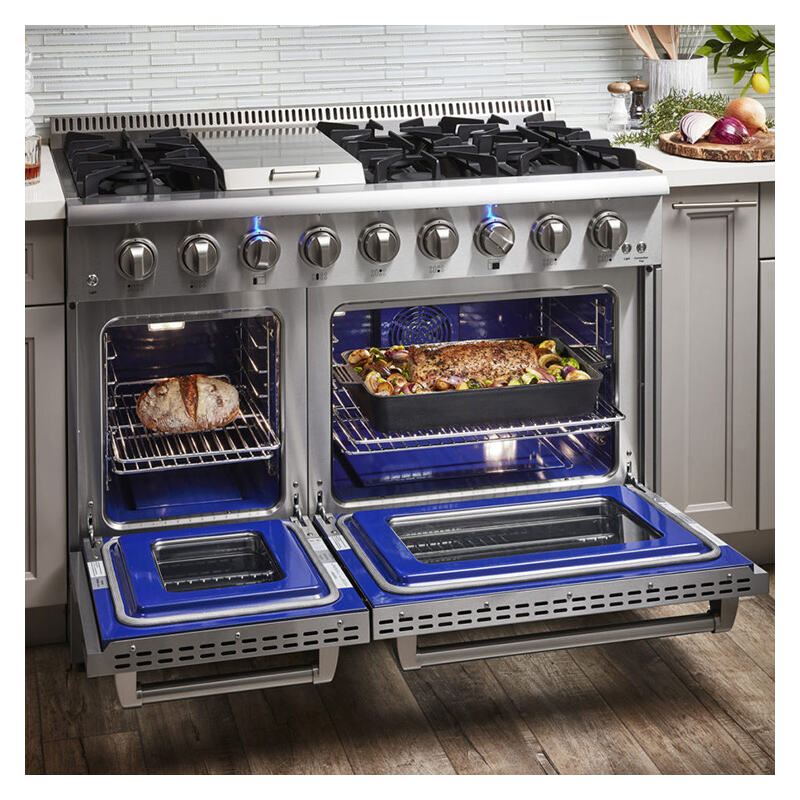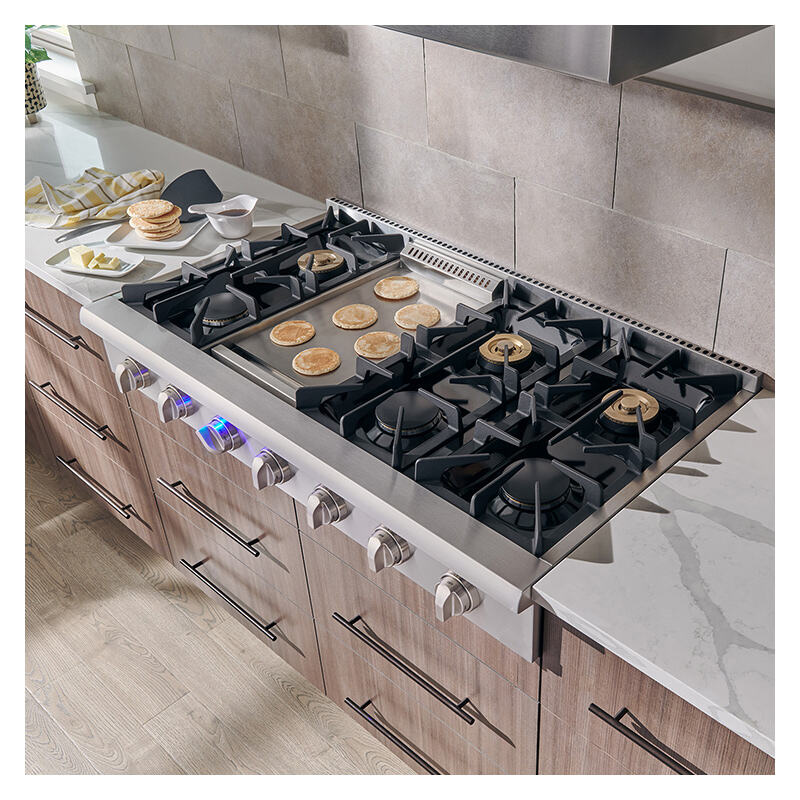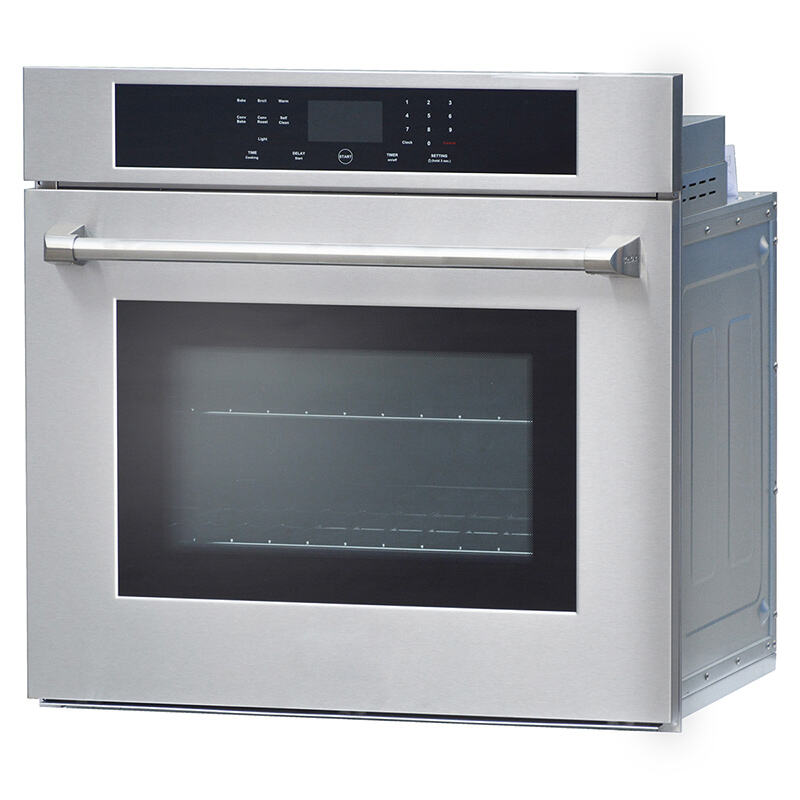How to distinguish between Range or Stove or Oven?
When it comes to choosing a kitchen appliance, the terms "range," "stove," and "oven" can get confusing! Each one serves different purposes, and the right choice for you depends on how you cook, the space you have, and your preferences.
A range is a combination of a stovetop (where you cook on burners) and an oven (for baking and roasting). A stove typically refers to the cooktop alone, where you sauté, boil, and fry. Meanwhile, an oven is specifically for baking, roasting, and broiling and can be built into a wall or stand alone.
In this guide, we’ll help you understand the pros and cons of each appliance, showing which options fit best in various kitchen spaces. You’ll get answers to common questions, making it easy to choose the right one. By the end, you’ll be ready to pick the appliance that will enhance your cooking experience!
How to distinguish between Range or Stove or Oven?
Which kind of stove is more suitable for me?
For Passionate about clean energy
What is a Range?

A range is a cooking appliance that combines both a stove (cooktop) and an oven in one unit. With a range, you can use the stove on top to boil, fry, or simmer foods and use the oven below to bake or roast.
Pros and Cons of Ranges
Pros:
Saves space by combining the stovetop and oven in one appliance.
Usually less expensive than buying a separate stove and oven.
Great for small to medium kitchens.
Cons:
The stove and oven cannot be separated, which will make your kitchen cooking life a mess if you have limited space.
Who Should Consider a Range?
This fantastic range is perfect for small and medium-sized kitchens! It'll meet all your cooking and baking needs, and if you love using one device for everything, this is the ideal choice for you!
What is a Stove(Cooktop)?

The stove, often called a cooktop, refers to the heating surface used to cook food. Stoves can be gas or electric and are typically installed on top of a counter or combined with an oven in a range.
Pros and Cons of Stoves
Pros:
Provides flexibility in kitchen layout, as it can be installed separately from an oven.
Great for homes with limited space or where cooking is done mostly on a stovetop.
Cons:
Does not have an oven included, so you’ll need a separate oven if you want to bake or roast.
Who Should Consider a Stove?
A separate stove is a great option for people who don’t bake often or have limited space in their kitchens. Similarly, the great thing about the stove (cooktop) is that it can be placed in so many different ways. This means you can pair it with an oven to create a kitchen that's just right for you!
What is an Oven?

An oven is an enclosed, heated compartment used for baking, roasting, and broiling. Ovens can be freestanding or built into a wall, allowing for a more customizable kitchen layout.
Pros and Cons of Ovens
Pros:
Can be installed at eye level, making it easier to access.
Separating the oven from the stove allows for flexibility in kitchen design.
Cons:
Requires extra space and may be more expensive if purchased separately from a cooktop.
Who Should Consider an Oven?
Ovens are ideal for people who enjoy baking and want one that doesn't require bending over, customizable kitchen. Wall ovens, for instance, are convenient for those who prefer not to bend down when cooking.
Which kind of stove is more suitable for me?
| Appliance | Description | Pros | Cons | Best For |
| Range | Combined stove and oven unit | Space-saving; convenient all-in-one | Limited flexibility; cannot separate | Small kitchens; compact, multi-use needs |
| Stove(Cooktop) | Cooking surface (gas/electric/induction) | Flexible layout; can install separately | Requires separate oven for baking | Custom layouts; stovetop-focused cooking |
| Oven | Enclosed compartment for baking/roasting | Flexible placement (e.g., wall-mounted) | Takes extra space; needs separate stove | Dedicated baking needs; No need to bend over |
For Frequent Home Cooks
If you enjoy cooking daily, ranges or dualfuel appliances (a combination of gas and electric) are great options. They offer flexibility, allowing you to easily switch between the stovetop and oven for a variety of recipes.
For Passionate about clean energy
Induction stoves and electric ovens are energyefficient and great choices if you want to reduce your energy usage. They also cook food quickly, saving both time and electricity.
For Apartment Dwellers and Renters
If you’re working with a small kitchen or want something lowmaintenance, an electric range or a portable cooktop might be the best choice. These options are easy to install and maintain without needing a gas hookup.
F A Q
What’s the Difference Between Induction and Electric Stoves?
Induction stoves heat cookware directly using magnetic energy, making them more efficient and safer because they only heat the pan, not the stovetop surface. Electric stoves, on the other hand, heat the entire cooking surface, which can be less efficient.
What are the Most BudgetFriendly Options?
Electric ranges are often the most affordable and can be a good choice for renters or people on a tight budget. Gas ranges may also be affordable but require a gas hookup.
Which Stove Is Best for Small Kitchens?
For small kitchens, a compact range or a single cooktop is typically best, as they save space and are easy to fit into a tight layout.
Conclusion
Choosing the right appliance depends on your kitchen space, cooking habits, and personal needs. Ranges offer the best of both worlds for small spaces, while separate stoves and ovens are excellent for those who enjoy a custom layout. Whether you’re baking, cooking daily, or saving space, there’s an option that will fit your kitchen perfectly.
When deciding, consider your space, energy needs, and how often you’ll use the appliance. With these tips, you’ll be able to choose the right setup for your home.

 EN
EN
 AR
AR
 BG
BG
 HR
HR
 CS
CS
 DA
DA
 NL
NL
 FI
FI
 FR
FR
 DE
DE
 EL
EL
 IT
IT
 JA
JA
 KO
KO
 NO
NO
 PL
PL
 PT
PT
 RO
RO
 RU
RU
 ES
ES
 SV
SV
 TL
TL
 IW
IW
 ID
ID
 LV
LV
 LT
LT
 SR
SR
 SL
SL
 SQ
SQ
 HU
HU
 MT
MT
 TH
TH
 TR
TR
 FA
FA
 MS
MS
 GA
GA
 IS
IS
 HY
HY
 AZ
AZ
 KA
KA
